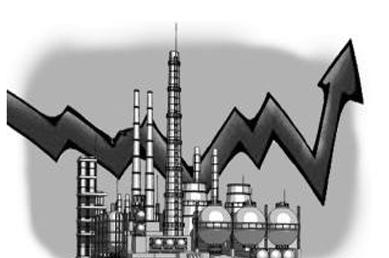
On March 27th, the National Development and Reform Commission announced a price adjustment plan for refined oil products. The domestic retail price of gasoline and diesel was reduced by 310 yuan and 300 yuan per ton respectively.
More important than lowering the price of oil, the NDRC adjusted its pricing mechanism for refined oil products. The main contents include: shortening the price adjustment cycle of refined oil from 22 working days to 10 working days; canceling the 4% limit of the average price fluctuation and adjusting the affiliated oil types, but if the price of gasoline and diesel changes less than 10 liters per liter per day For 5 cents, no adjustment will be made and the move will be moved to the next adjustment.
This is the second reform since the National Development and Reform Commission announced the "Oil Prices Management Measures" in May 2009. Compared with the previous time, the new refined oil pricing mechanism responded more quickly to the market, and the price adjustment approach became more pragmatic and also facilitated the people to a certain extent.
Shortening the price adjustment period and cancelling the 4% limit can be considered as "the tone is adjusted." In the past 22 working days, the price adjustment cycle was too long and the price adjustment boundary was too high. The price signal was obviously difficult to reflect sensitively the changes in international oil prices. An extreme example is that in such a long period of time, if the average price of affiliated oil in the first 20 working days has dropped by 4%, and the price has rebounded in the next two working days, the overall price decline will be close to but not reaching If 4% is not adjusted for oil prices, market equity will be lost. The price adjustment period of 10 working days is steady and moderate. Lowering the price adjustment boundary can also effectively avoid the problem of blockage of gas stations due to price adjustment.
However, on the whole, the new refined oil pricing mechanism is still operating within the original framework, and some aspects may even be backwards.
The opaque and unfairness of Chinese refined oil pricing have been criticized. How to formulate a benchmark retail price of refined oil? The slogan of the NDRC is vaguely based on the average value of the crude oil price of the land, together with the cost of oil refining, appropriate profit margins, and tariffs and refined oil circulation fees. But what is the cost of oil refining? How much profit should the proper profit space be? Are the oil giants talking about themselves? What exactly are the pricing formulas? These are the core issues that these consumers are very concerned about. The NDRC still has not given an answer.
The reform of the refined oil pricing mechanism will adjust the affiliated oil types appropriately, but it has not stated which oil prices will be linked to. This has led to many speculations. Compared with the previous reference to the oil prices of Brent, Dubai, and Xinta, the reforms on the transparency have actually gone backwards. There is reason to worry: If you are affiliated with high-priced oil?
In fact, such fears are not groundless. The price adjustment of refined oil products has always gone up or down, which has already left consumers with a fear.
In recent years, the scale of China's imported crude oil has continued to expand, and the degree of foreign oil dependence has increased from 30.2% in 2000 to 57.8% in 2012. But even so, there is still more than 40% of the oil supply coming from domestic sources. In the refined oil pricing, are these domestic oils "tariffed"? What kind of resources should be provided to the people?
The price reform has led to the whole body, especially the reform of energy prices. In China's energy price reform, the refined oil price reform can be described as the earliest start and the fastest pace of reforms, but it may have the most questions and complaints. If it is emphasized in the opaque that refined oil prices are in line with international standards, and at the same time sticking to the conservative monopoly of the industry, such doubts and complaints will certainly continue.
In any case, when the two major oil giants maintain hundreds of billions of dollars in profits each year, and consumers are exposed to high oil prices, all explanations are pale.
Obviously, the ultimate goal of reform of refined oil products is marketization, that is, breaking the monopoly of the oil industry on the basis of openness, fairness, and fairness, so that the entire social capital can participate in full competition, thus forming a market equilibrium price.
From this point of view, the new refined oil pricing mechanism is far from the final solution, or just a staged program in the process of marketization. The key point is that this transition should not last long.
Swivel Wheels,Light Duty Caster,Casters And Wheels,Industrial Caster Wheels
JIANGSU SHENPAI CASTER CO., LTD , https://www.shenpaicaster.com